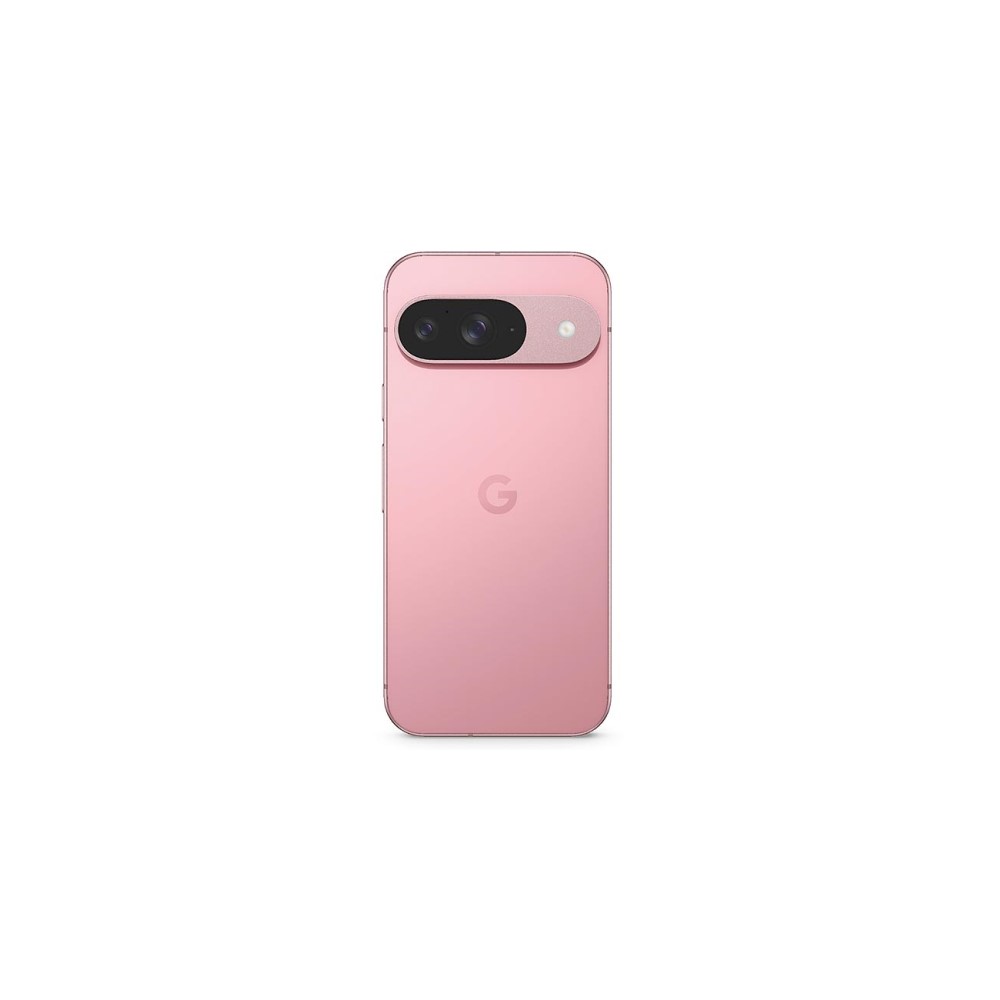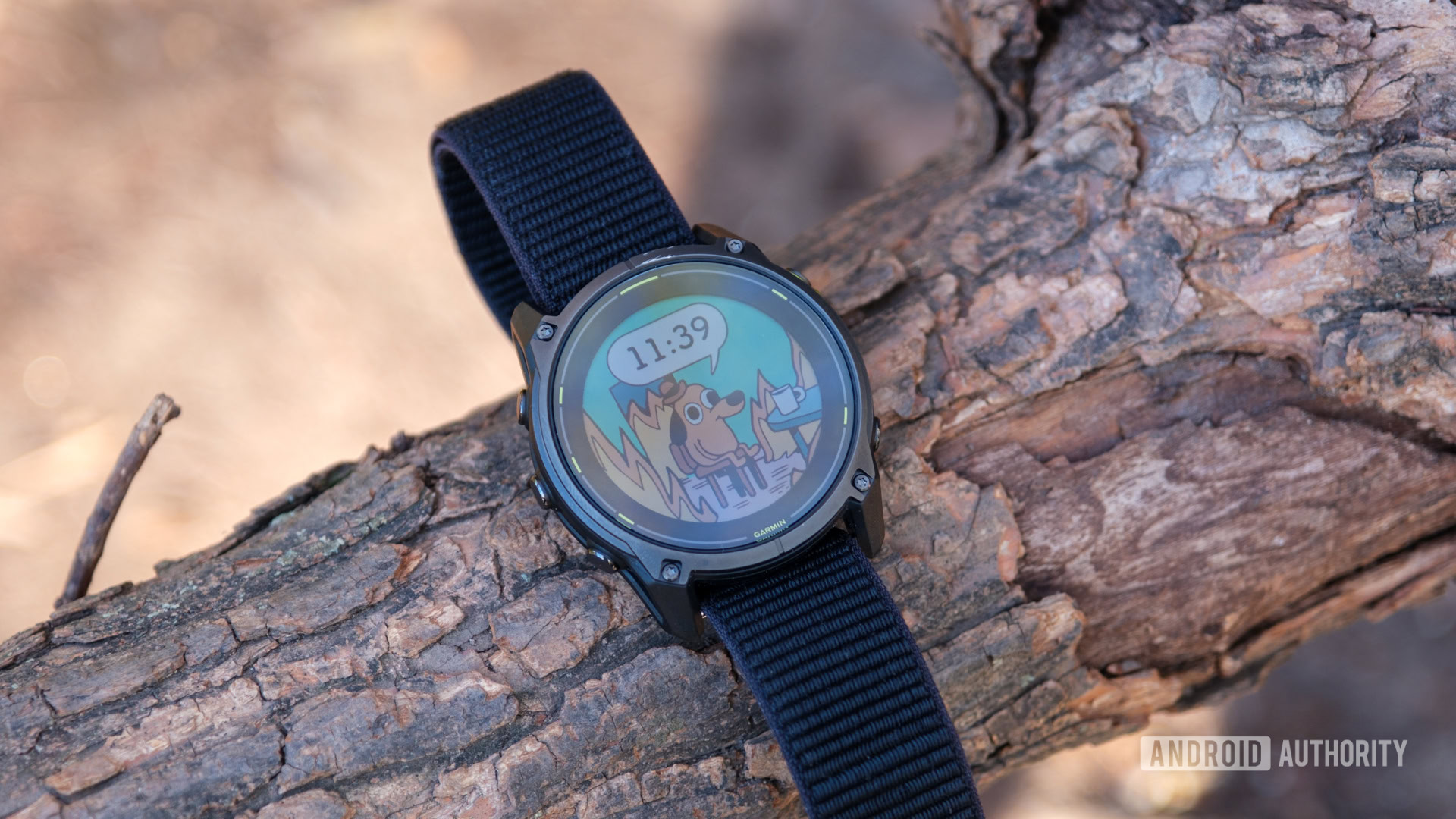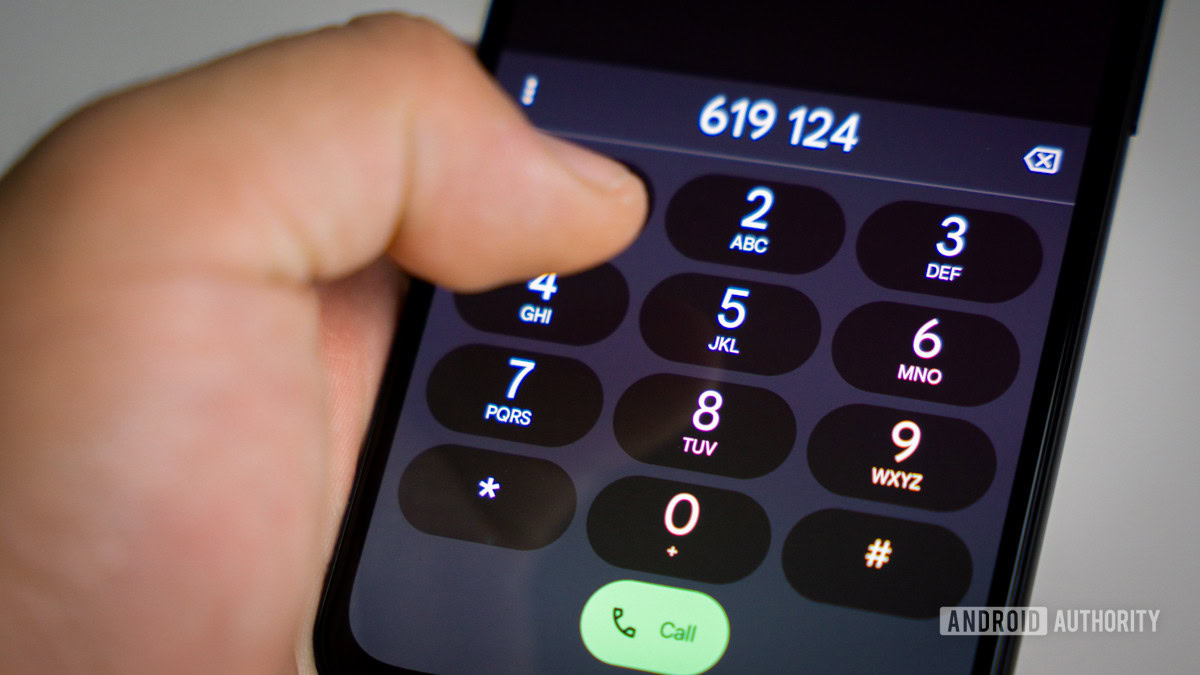We called the Google Pixel 8 a “great little smartphone” in our in-depth review, drawing particular enjoyment from its camera performance, Gemini AI smarts, and seven-year update commitment. Google would always have its work cut out to best itself, but the Pixel 9 might have the upper hand in several areas. If you’re a Pixel 8 owner and wondering if 2024 is the year to upgrade, or if you’re looking for a level-headed head-to-head comparison, read on for our Pixel 9 vs Pixel 8 explainer.
Google Pixel 9 vs Pixel 8: At a glance
- The Pixel 9 is more expensive than the Pixel 8.
- Google uses the newer, more powerful Tensor G4 chipset in the Pixel 9.
- The Pixel 9 boasts more RAM than the Pixel 8.
- The Pixel 9 has a hugely upgraded ultrawide camera compared to the Pixel 8.
- Google's Pixel 9 has an ultrasonic fingerprint scanner, unlike the Pixel 8's optical unit.
- The Pixel 9 has a larger battery than the Pixel 8.
Pixel 9 vs Pixel 8: Specs
Display | Google Pixel 9 6.3-inch OLED | Google Pixel 8 6.2-inch OLED |
Processor | Google Pixel 9 Google Tensor G4 | Google Pixel 8 Google Tensor G3 |
RAM | Google Pixel 9 12GB LPDDR5X | Google Pixel 8 8GB LPDDR5X |
Storage | Google Pixel 9 128 or 256GB | Google Pixel 8 128 or 256GB |
Power | Google Pixel 9 4,700mAh (typical) | Google Pixel 8 4,575mAh (typical) |
Cameras | Google Pixel 9 Rear - 48MP ultrawide (ƒ/1.7 aperture, 123-degree FoV, 1/2.55-inch sensor, AF) Front: | Google Pixel 8 Rear: - 12MP ultrawide (ƒ/2.2 aperture, 125.8-degree FoV, AF) Front: |
Dimensions and weight | Google Pixel 9 152.8 x 72 x 8.5mm | Google Pixel 8 150.5 x 70.8 x 8.9mm |
Video | Google Pixel 9 Rear: Front: Supports: 10-bit HDR, Cinematic Blur/Pan, Slo-Mo up to 240fps, 4K timelapse with stabilization, Astrophotography timelapse, OIS, Fused video stabilization, Cinematic Pan video stabilization at 4K and 1080p, Locked video stabilization at 4K and 1080p, Active video stabilization at 1080p, HEVC (H.265), AVC (H.264) | Google Pixel 8 Rear: Front: Supports: Macro Focus Video, 10-bit HDR, Cinematic Blur/Pan, Slo-Mo up to 240fps, 4K timelapse, Astrophotography timelapse, OIS, digital zoom up to 7x, HEVC (H.265), AVC (H.264) |
Audio | Google Pixel 9 Stereo speakers | Google Pixel 8 Stereo speakers |
Ports | Google Pixel 9 USB-C 3.2 | Google Pixel 8 USB-C 3.2 |
Security and Safety | Google Pixel 9 Titan M2 security chip | Google Pixel 8 Titan M2 security chip |
Durability | Google Pixel 9 Gorilla Glass Victus 2 (front and back) | Google Pixel 8 Gorilla Glass Victus (front and back) |
Software | Google Pixel 9 Android 14 | Google Pixel 8 Android 14 |
Colors | Google Pixel 9 Obsidian (black), Porcelain (cream), Wintergreen (green), Peony (pink) | Google Pixel 8 Obsidian (black), Hazel (blue-gray), Rose (pink) |
The Pixel 9 offers the usual spate of annual upgrades; it’s what you’d expect from a refresh of the best Android smartphones. It launches with the Tensor G4 chipset, a minor version tick up from the G3 with rearranged cores clocked slightly higher. Google is talking up the chipset’s AI performance, claiming that its TPU can generate up to 45 tokens per second for on-device Gemini functionality. This should make for faster query crunching, especially when paired with its quicker app-launching claims and the additional 4GB of RAM over its predecessor.
The Pixel 9 offers the usual spate of annual upgrades; it's what you'd expect from a refresh of the best Android smartphones.
Up front, the Pixel 9 wears a slightly larger 6.3-inch screen but without a significant body size increase. The display’s brightness increases from 1,400 nits on the Pixel 8 to 1,800 on the new model. It also hides a new ultrasonic fingerprint scanner, trumping the slower, less accurate optical sensor used on the older model. That may not seem like a marked upgrade, but it’s big news for those who struggled to gain access to their older flagship. Interestingly, the slightly larger display paired with a similar resolution means that the Pixel 8 wears the nominally denser display. It’s a small margin, but a win is a win.
Google took an important stance on software updates last year, which carries over to this year’s device. The Pixel 9 will also receive seven years of software support, extending its usable life into 2031 and potentially beyond.
Pixel 9 vs Pixel 8: Design, size comparison, and colors
Perhaps I’m in the minority, but I wasn’t a fan of Google’s Pixel 8 styling. The camera bar stood prominently on the phone’s back and tapered subtlely into its frame. It was definitely a distinct design choice that set the series apart from its chief rivals. In 2024, the Pixel 9 now wears a large camera island housing its two rear sensors on its far-left side balanced by a flash module on the right. The island’s a little more fruity, wearing a color-matched textured finish that contrasts with the soft matte rear plate. Overall, the Pixel 9 is more iPhone-like than the Pixel 8, offering sharp edges, flat sides, and even flatter buttons.
What the Pixel 9 does lose with its sanitized styling is personality, something that the Pixel 8 still has in spades. The retro-modern 2023 flagship will arguably turn more heads, especially thanks to that gleaming metallic camera bar.
What the Pixel 9 does lose with its sanitized styling is personality, something that the Pixel 8 still has in spades.
Up front, the two devices are fairly similar in profile, with slim bezels, curved screen corners, and a punch-hole camera. They’re also similar in terms of dimensions, although, as mentioned, the Pixel 9 is the larger of the two. It’s 0.4mm thinner but 2.3mm taller and 1.3mm wider than the Pixel 8. In reality, that’s not much of an increase, but these minor increases support considerable display and battery improvements. It also means an 11g weight penalty.
Should you accidentally drop either phone, the new device is more likely to survive. Google claims the Pixel 9 is more durable than the Pixel 8, boasting a layer of Gorilla Glass Victus 2 over its display and rear. The Pixel 8 settles for the original Victus version. Anecdotally, Google notes that the Pixel 9 is made with resilience in mind. Make of that what you will, but we’d still recommend you slap a case on it. Either way, both phones pack an IP68 water resistance rating, so water drops shouldn’t trouble either device.
Regarding colors, the Pixel 9 has the Pixel 8 beat once again. I’m a sucker for pink, and the new Peony colorway screams springtime. It’s joined by the equally verdant Wintergreen, Porcelain, and Obsidian. That’s green, cream, and black for pragmatists. The Pixel 8 deals a less vivid array of Obsidian, Hazel (light gray), and Rose (light pink).
Pixel 9 vs Pixel 8: Camera
C. Scott Brown / Android Authority
Step 1: First photo
Google camera upgrades are like buses. After spending years running the same hardware, recent Pixels have seen successive camera bumps. This year, the Pixel 9 has improved front and rear snappers.
Notably, both Google phones use 50MP sensors for primary photo duties, including the same f/1.68 aperture and 82-degree field-of-view, but the Pixel 9 now offers a 48MP ultrawide camera with an f/1.7 aperture and 123-degree field-of-view. That’s a considerable upgrade over the Pixel 8’s 12MP f/2.2 125-degree package. If you’re particularly keen on photographing landscapes, architecture, or creative angles, the new ultrawide camera could be all the motivation you need to ditch the Pixel 8.
Up front, the Pixel 9 also gains autofocus on its 10.5MP selfie sensor, which should improve clarity during video calls or impromptu self-portraits.
The bottom line is that the Pixel 9 is the better camera phone thanks to its upgraded ultrawide and enhanced selfie camera.
As for video, the Pixel 9 misses out on the 8K upscaling capabilities of the Pixel 9 Pro and Pro XL, so its maximum video quality matches the Pixel 8’s 4K 60fps spec. It does sport plenty of video stability tech, though, so the newer phone should provide a less shaky moving picture experience.
One of Google’s biggest strengths is its array of camera software features, and the Pixel 9 offers the same smarts as the Pixel 8. This includes Magic Eraser, Night Sight, Real Tone, and much more. Bear in mind that due to its later launch date, the Pixel 9 will receive a few more months of software updates over the Pixel 8 — this could include camera smarts via Pixel Feature Drops.
It’s worth noting that the Pixel 8 went without a telephoto camera, and the Pixel 9 doesn’t fix this chink. Google does note that the main camera can be used for 2x shots, and the company also talks up its Super Zoom feature, but we would’ve liked a dedicated reach lens for capturing distant details.
Either way, the bottom line is that the Pixel 9 is a better camera phone than the Pixel 8, thanks to its upgraded ultrawide camera and enhanced selfie shooter.
Pixel 9 vs Pixel 8: Battery life and charging
C. Scott Brown / Android Authority
Pixel 9
If photography is one of Google’s strengths, charging is its weakness. The Pixel 8 did offer faster wired charging over the Pixel 7 it replaced, topping out at 27W provided you owned the correct brick. It allowed 77-minute full top-ups of its 4,575mAh battery, which, while not rapid, is fast enough for most users.
The Pixel 9 keeps the 27W maximum charging speed but bumps its battery capacity up to 4,700mAh. In theory, this should make for a slightly longer charging cycle than the Pixel 8, but I’d take capacity over charging speed any day. Both phones support Qi-based wireless charging.
Pixel 9 vs Pixel 8: Price and availability
Google Pixel 9 (12GB/128GB): Starts at $799
Google Pixel 8 (8GB/128GB): Starts at $699
Google couldn’t keep the price of its base flagship consistent, forcing through a $100 price increase this year. This means that the Pixel 9 will demand $799 from willing buyers. If you are interested in snagging one, preorders went live on August 13, 2024, soon after the phone’s launch. General availability starts on August 22.
You can preorder the device from the Google Store in supported countries, and we expect it to be widely available from major retailers across the US, Europe, and other regions.
The Pixel 8 has been available since October 4, 2023. The outgoing Google flagship seems like a steal at $699, especially considering the Pixel 9’s price increase. However, the phone can be purchased for even less since it’s been on the market for almost a year, and its successor is now available. It can still be purchased through major retailers and is widely available where Google products are available.
Pixel 9 vs Pixel 8: Should you upgrade?
C. Scott Brown / Android Authority
Pixel 9
It’s tough to suggest that upgrading from a barely a year-old phone is worth it, but the Pixel 9 makes as good a case as any. The Pixel 8 is by no means a bad phone, and is well worth keeping for many seasons to come. It still carries more than six years of Google’s lengthy software support promise, and its camera capabilities remain competent. The Tensor G3 chipset supports a myriad of Gemini AI features.
However, there is room for improvement, and the Pixel 9 capitalizes on this.
Yes, it costs $100 more, but the Tensor G4 chipset looks a more competent piece of silicon on paper, the design refresh should boast more mainstream appeal, the seven-year update commitment stretches even deeper into the next decade, while the ultrawide camera update will be massive for photographers. I haven’t even mentioned the ultrasonic fingerprint scanner yet, which, for some, will be the biggest upgrade this year.
I'd argue that the Pixel 9 brings more than $100 worth of updates, and is well worth upgrading to for some Pixel 8 buyers.
All in all, if you own a Pixel 8 and believe the Pixel 9’s new features bring value, you might consider upgrading. This notion is made especially tempting when considering potential trade-in options. Either way, for new users, it’s now also the best onboarding point for those new to Google’s ecosystem.
Of course, the Pixel 8 is still well worth buying if you can find it at a reasonable price. Now that Google’s new hotness is available, expect to find it well below its launch price.
Google Pixel 9 vs Pixel 8: Would you upgrade?
0 votes
Pixel 9 vs Pixel 8: FAQ
The Pixel 9 and Pixel 8 both feature IP68 water resistance ratings.
Yes, both the Pixel 9 and Pixel 8 support wireless charging.
No, neither the Pixel 9 nor the Pixel 8 feature microSD card slots.
Yes, both Google phones support eSIM profiles and a physical SIM slot, allowing for dual-SIM functionality.








 English (US) ·
English (US) ·